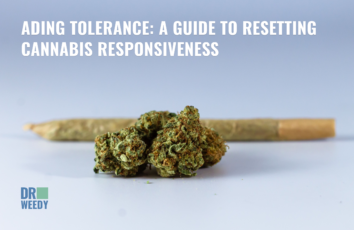Tinnitus from Cannabis — Myths or Truth?
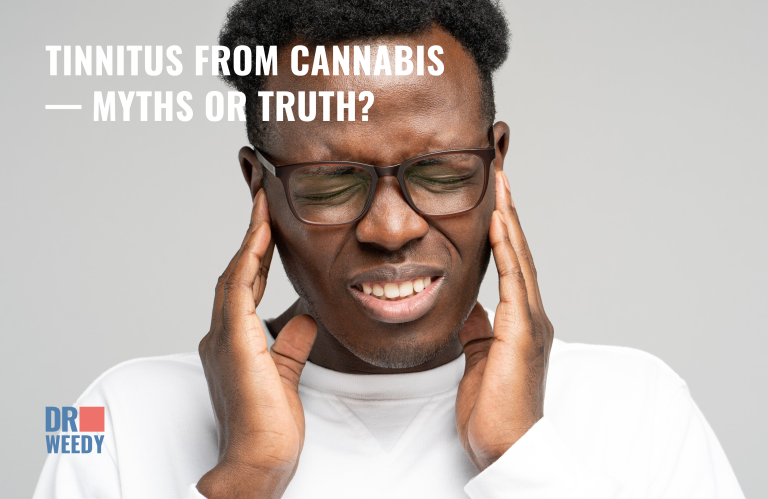
Have you ever experienced those annoying moments when a high-pitched ringing or buzzing sound seems to fill your ears, even when there’s no external source? This condition is known as tinnitus, and it can range from a mild annoyance to a constant disruption in one’s daily life.
Many factors can contribute to tinnitus, including exposure to loud noises, certain medications, and even stress. But what about cannabis? Can it really cause tinnitus? Does medicating with marijuana place you at risk of getting tinnitus? Keep reading to discover the truth.
The Truth About Tinnitus
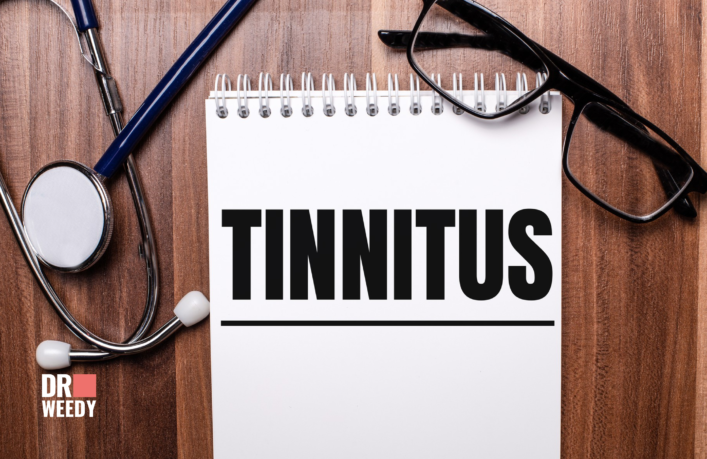
Before we dive into the potential link between cannabis and tinnitus, let’s briefly understand what tinnitus actually is. Tinnitus is not a disease itself but rather a symptom of an underlying condition. It manifests as a perception of sound in the absence of any external noise.
Interestingly, tinnitus is a prevalent symptom, affecting approximately one in every five individuals, characterized by the perpetual presence of an intrusive auditory disturbance. It can also be temporary or chronic, and it affects millions of people worldwide.
What Does Tinnitus Sound Like?
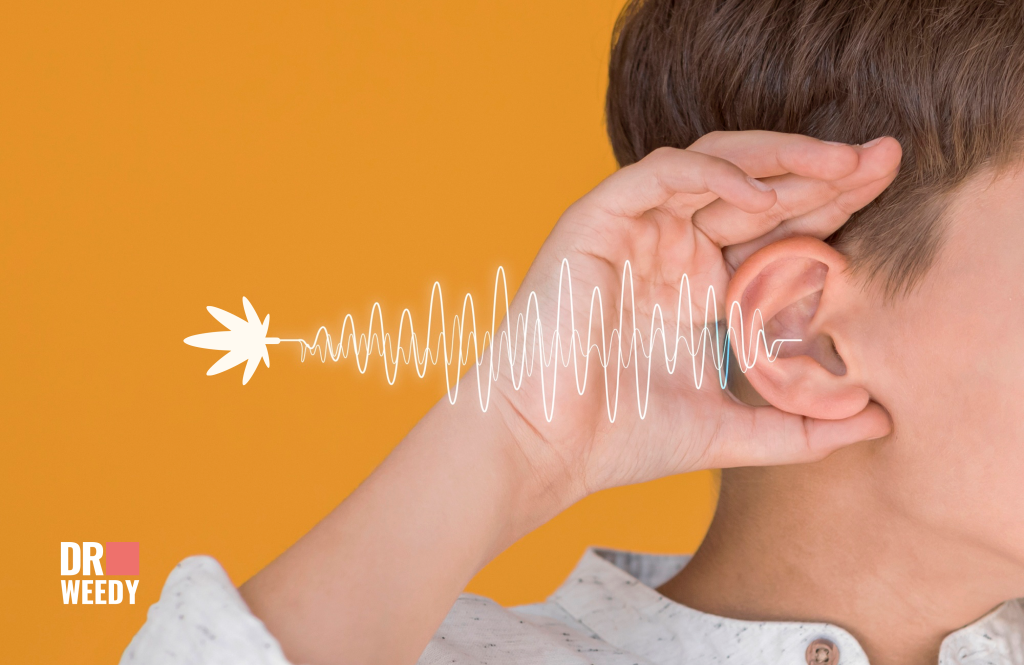
Describing tinnitus to someone who has never experienced it can be quite challenging. It’s a highly subjective sensation that varies from person to person. The sound can range from ringing, buzzing, hissing, or even roaring. Some people describe it as a high-pitched ringing or whistling sound, while others may hear a buzzing or humming noise. Some even report hearing music or voices in their ears. The intensity and frequency of the sound can also differ, making tinnitus a unique and personal experience for each individual.
Is There Any Evidence of Marijuana Causing Tinnitus?
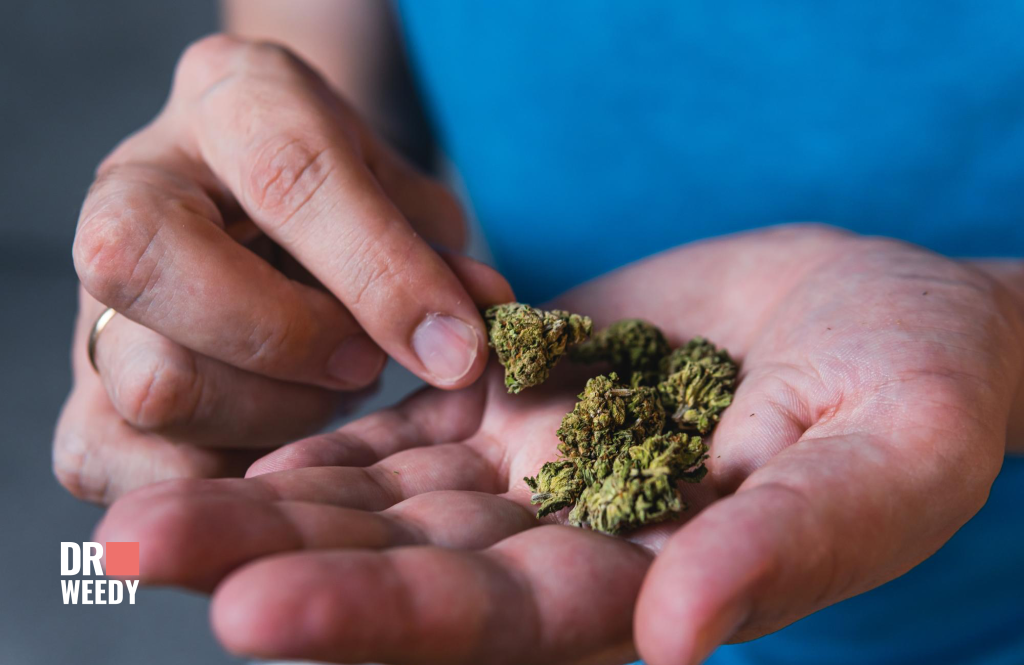
This topic has sparked much debate among both cannabis users and medical professionals. While some anecdotal reports suggest a possible link between marijuana and tinnitus, scientific evidence remains limited and inconclusive.
Animal Studies
In 2011, an animal study shed light on the potential connection between cannabis exposure and the manifestation of tinnitus. The findings indicated that the presence of noise in the ears could be attributed to altered brain chemistry and activity of GABA receptors resulting from cannabis exposure.
A 2015 study on rats found that cannabinoids, specifically a 1:1 THC to CBD ratio, may contribute to the development of tinnitus in subjects with preexisting hearing damage.
A 2017 study on guinea pigs revealed that a CB1 agonist known as arachidonyl-2-chloroethylamide may have otoprotective properties, but it did not show any effectiveness in reducing tinnitus symptoms.
Human Studies
Stanford University conducted a research endeavor spanning 2011 to 2012 to evaluate the medical effects of marijuana. However, a significant majority out of the over 1500 participants reported an increased likelihood of developing tinnitus even with infrequent, once-a-month marijuana use. Moreover, individuals already affected with the condition reported no discernible positive changes following cannabis usage.
The studies demonstrated that marijuana users may be more susceptible to experiencing tinnitus. But does this then confirm that cannabis causes tinnitus?
What Do Marijuana Proponents Say?
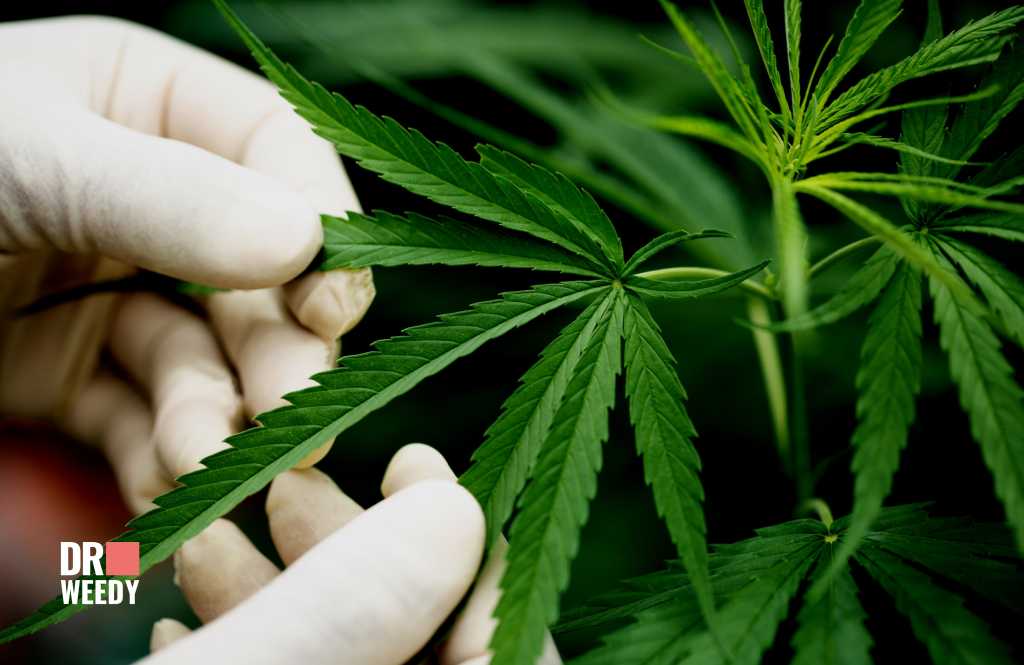
Advocates of cannabis often argue that the plant possesses various medicinal properties and can help with a wide range of conditions. However, when it comes to tinnitus, the claims are mixed. Some individuals assert that cannabis has alleviated their tinnitus symptoms, providing them with relief and a sense of calm. They believe that the anti-inflammatory and analgesic properties of cannabis might contribute to this effect.
In his book, renowned blogger Glenn Schweitzer recounts his personal experience of living with tinnitus and explores various techniques he tried to alleviate its symptoms. Among these methods, Schweitzer found CBD oil to be one of the most effective. He discovered that taking CBD oil would typically take around 30 minutes to relieve the noise associated with tinnitus, as well as alleviate feelings of anxiety and stress. Numerous reports similar to this can be found online, further highlighting the potential benefits of cannabis and CBD oil in managing tinnitus. Moreover, most people with tinnitus prefer treating the symptom with marijuana.
Can CBD Treat Tinnitus?
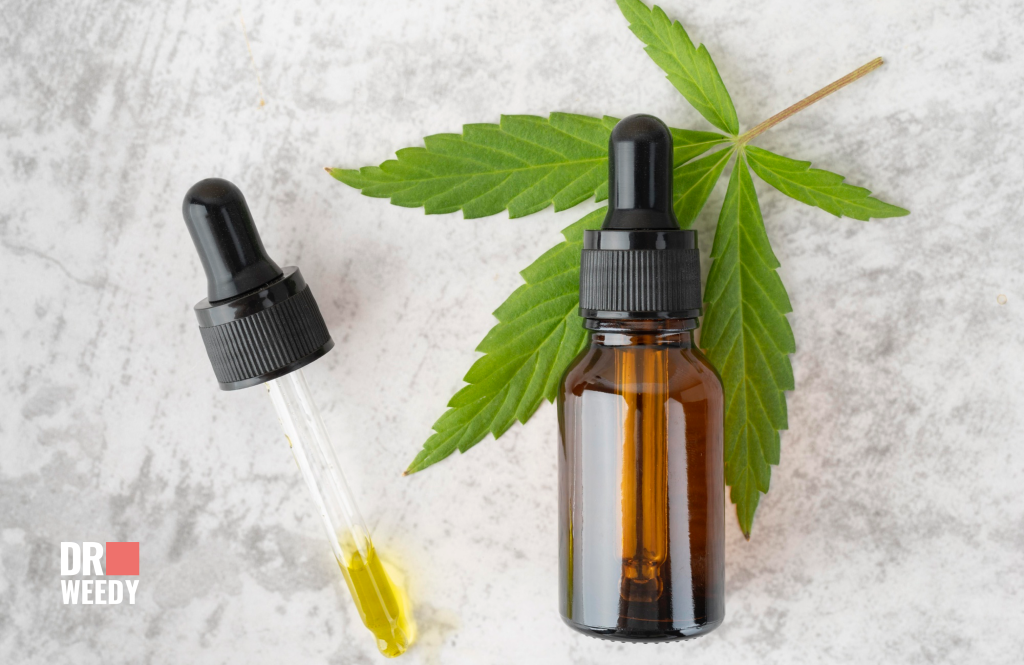
CBD oil, a non-psychoactive compound found in cannabis, has gained significant attention for its potential therapeutic properties. Some research suggests that CBD might be beneficial for certain auditory disorders, including tinnitus, due to its anti-inflammatory and neuroprotective effects.
Why Marijuana May Cause Tinnitus
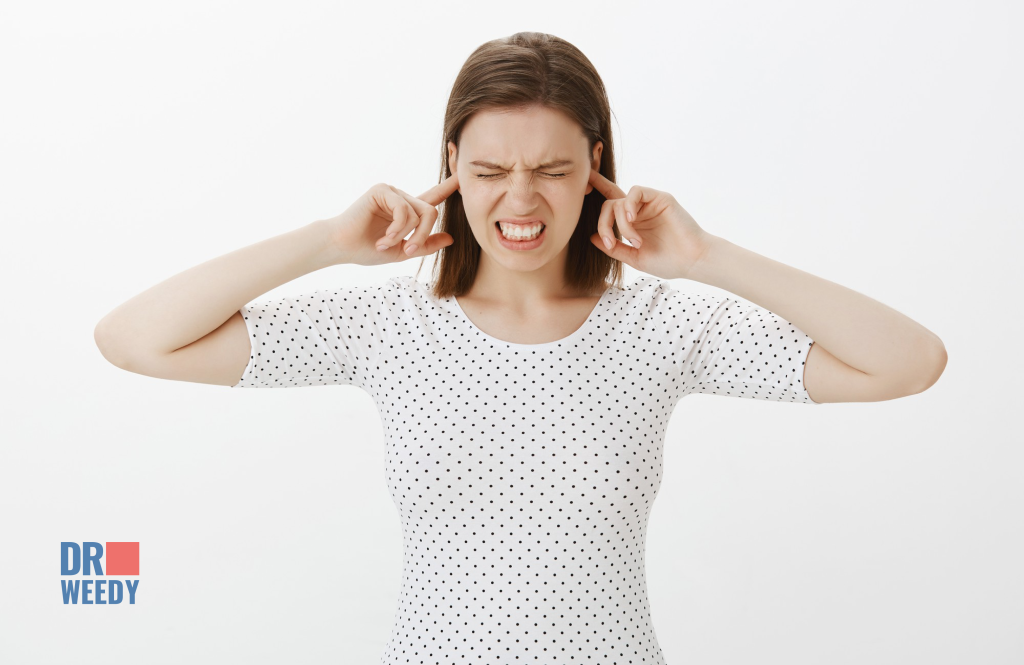
If cannabis can potentially cause tinnitus, one possible explanation is the interaction between cannabinoids and the endocannabinoid system, which plays a crucial role in regulating various physiological processes. The auditory system contains cannabinoid receptors, and altering their activity through cannabis use could potentially disrupt the normal functioning of the auditory system, leading to tinnitus.
How to Avoid Tinnitus from CBD?

If you’re considering using CBD oil for its potential health benefits but are concerned about the risk of tinnitus, there are a few precautions you can take.
- Start with a low dosage: This approach allows your body to adjust to the effects of CBD and reduces the risk of developing tinnitus.
- Choose high-quality CBD products: Using high-quality CBD reduces the likelihood of experiencing adverse effects such as tinnitus.
- Consult with a healthcare professional: Before incorporating CBD into your routine, consult with a healthcare professional.
- Monitor your dosage and response: Keep track of your CBD dosage and observe how your body responds. If you notice any signs of tinnitus or other adverse effects, adjust your dosage to minimize the risk.
- Be mindful of other factors: Tinnitus can be triggered or worsened by various factors, including stress, noise exposure, and certain medications.
Frequently Asked Questions
Q: Can cannabis cause temporary tinnitus?
A: Temporary tinnitus can be caused by various factors, including exposure to loud noises or certain medications. If you experience tinnitus after using cannabis, it’s advisable to discontinue use and consult with a healthcare professional for further evaluation.
Q: Is there a specific strain of cannabis that is more likely to cause tinnitus?
A: As of now, there is no specific strain of cannabis that has been identified as more likely to cause tinnitus. The potential link between cannabis and tinnitus is still under investigation, and more research is needed to determine if certain strains or components of cannabis are more likely to contribute to tinnitus symptoms.
Q: Can tinnitus from cannabis use be reversed?
A: The reversibility of tinnitus symptoms related to cannabis use can vary from person to person. In some cases, tinnitus may resolve on its own once cannabis use is discontinued.
Q: Are there other factors that can contribute to tinnitus while using cannabis?
A: Yes, there are several factors that can contribute to tinnitus while using cannabis. These include pre-existing conditions such as hearing loss, exposure to loud noises, medications that interact with cannabis, or individual sensitivity to cannabinoids. It’s important to consider these factors and discuss them with a healthcare professional to determine the potential causes of tinnitus.
Final Thoughts
While there is ongoing discussion regarding the potential link between cannabis and tinnitus, it’s important to approach the topic with an open mind and rely on credible scientific research. Each person’s experience with cannabis and tinnitus can be unique, and individual responses may vary.
Seeking guidance from healthcare professionals and making informed decisions based on personal circumstances is crucial for ensuring your well-being.




























